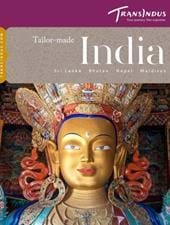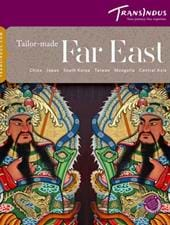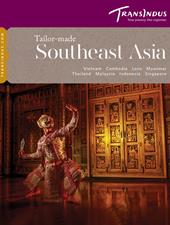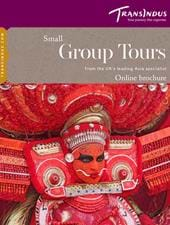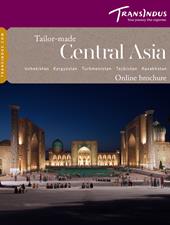Time zone: UTC +9 hours
Flying time: 11 hours
Capital: Seoul
Currency
The currency in South Korea is the Won. Coins are minted in denominations of 1, 5, 10, 50, 100 and 500 won, but 1 and 5 are hardly ever seen. Bank notes are printed in 1000, 5000 and 10000 denominations.
Money and travellers cheques can be exchanged at the airport, most major banks and post offices, and some major hotels. Banks are open 0930-1700hrs excluding weekends and national holidays. It is advisable that you exchange any remaining Won you have before you leave the country, as exchanging abroad can prove difficult.
One should get into the habit of carrying a little more cash than you would do in the UK. Crime levels in Korea are relatively low, and whilst one should not be careless, carrying a little more money is generally a lot safer than it would be at home. Credit cards are accepted at most major hotels, department stores and high-end city restaurants, but should not be relied upon.
Similarly, do not depend on international ATMs to withdraw your won. Some banks in major tourist areas do have ATMs that accept foreign cards. You should look for an ATM with a ‘Global’ sign and the logo of your credit card company. However cash machines do not operate 24 hours a day. They generally close at 2200hrs or earlier and may not operate at the weekends or on public holidays. In rural areas they may also be hard to find.
Healthcare
You should consult your doctor before travelling to South Korea with regards to the recommended vaccinations. Though none are required to gain entry a number are recommended. These include: Hepatitis A and B, diphtheria and tetanus, MMR and typhoid. It is not advisable to drink tap water. Korean summers are very hot and humid so you should take the normal precautions of limiting the time spent in the midday sun and drinking plenty of fluids.
We also recommend you carry with you a small supply of basic health care medication such as travel sickness tablets, anti-diarrhoea tablets, insect repellent, sun creams and a general purpose antibiotic. Although most of these items are available in Korea, the security provided by brands one is used to is reassuring. Also, antiperspirant can be hard to find outside of the major cities and towns.
We strongly recommend that all travellers be properly insured for the holiday. If you have taken your own travel insurance, please check that it includes repatriation costs. Medical bills in Korea can be expensive and English is not widely spoken at hospitals outside of the major areas.
Helpful hints when eating out
If you wish to eat out from the hotel you will often have a great deal of choice of what to eat and where. In large cities it is often useful to look up, as many restaurants are above street level. Venturing into a Korean restaurant (if you don’t speak or read any Korean) can be a little daunting. However, with a smile and a slightly adventurous spirit you will usually be fine. Some restaurants have photos of the dishes they serve. If you can’t make yourself understood then you can simply show the waiter what you would like by pointing!
Vegetarians in Korea
Vegetarianism is not very common in Korea. What is also important to understand is, to many Koreans, a vegetarian is someone who will not eat meat, but will eat fish. You have to make it clear if you cannot eat fish and stress that you don’t eat any meat. You also have to be careful with certain broths, sauces and garnishes as they can contain meat/fish products. There things for vegetarians to eat (including vegetarian bimbibap, sushi, kimchi and Buddhist meals); you just have to make it clear you don’t eat meat. Below are some useful phrases:
Jeon gogireul anmeogeoyo = I don't eat meat
Chaesikjuuija imnida jeon chaesikjuuijaeyo = I'm a vegetarian
I eumshige gogiga deureogayo = Does this dish contain meat?
Clothing
What to wear depends on when you are travelling as Korea’s weather varies with the seasons. Light sweaters and jackets are usually fine for much of spring and autumn. However it would be advisable to include some warm clothing if travelling from mid October onwards and also in much of March. Light, breathable clothing is best for the summer as temperatures are high (30+degress), as is the humidity. A hat is also a useful item to take. Winter jumpers, jackets, hats and gloves and shoes capable of keeping dry in the potential snow should be packed from mid to late November through to early March.
If visiting areas in the mountains temperatures here will generally be some degrees lower than elsewhere, especially at night.
At some of the monuments and temples, it is advisable to avoid sleeveless tops and short skirts.
Comfortable shoes are recommended.
In some temples you may be required to remove your shoes. This also sometimes applies to bathrooms in various places. Shoes that are easily removed and clean socks without holes are therefore generally a good idea!
The rainy season stretches from late June to August and rain can be very heavy. You may also experience showers at other times of the year. An umbrella or light waterproofs are sufficient protection from these showers. The typhoon season from July through late September can bring extremely heavy rain and strong winds lasting a few days. This is normally followed by clear weather.
**Note on packing**
When preparing for Korean the golden rule to follow is to try to pack light. The majority of public transport does not have a lot of room for large, bulky baggage. Train stations sometimes have few lifts and many stairs. If arrangements have been made to forward your baggage then ensure it is at the front desk of your hotel by the required time on the day of sending.
Hotel Rooms
It should be noted that Korean hotel rooms are sometimes slightly smaller than the norm of those found in the west.
Laundry
Most hotels offer same day laundry service. A portable iron can be handy when pressed for time. In remote areas laundry service may not be available.
Shopping
South Korea provides great opportunities for the shopper, especially in Seoul’s fantastic markets where you can find just about anything you would like.
When purchasing an expensive item, always check the level of duty payable in the UK on your import. Please remember VAT is payable on all goods above the value of £145 per person, even if an item is exempt from other import duties.
Please note that we, or any of our associate offices and agents in South Korea, are not responsible for any shopping and related problems, although we assure you of any help that we can provide.
Voltage
The electric voltage in South Korea is 220V AC with a 60hz cycle. However, a 110V outlet is sometimes found. Korean plug sockets are of the round two-pin type. An adaptor obtainable at airports or electrical stores in Korea will be needed to run UK devices.
Post, Phone Calls and Internet
Post Offices are open from 9am to 6pm. Postcards to a foreign country are 350won. When writing the address, please try to write as clearly as possible. International phone calls can be made from all hotels, but as always phoning from here can prove costly. There are a number of public phone booths from which international calls can be made. To make a direct international call first dial the international access code (001, 002, or 008) then the country code etc. International call from public telephones generally cannot be made with credit cards.
Many hotels have Internet access. In the larger cities Internet Cafes can be frequently found, as can 24hr PC gaming centres where you can also log on. Mobile phones can be rented on arrival at the airport but this service must be ordered in advance. Online reservation is possible at www.Tour2Korea.com
Emergency Numbers
112 – Police
119- Fire
1339- Medical Services
Meeting for tours
When you arrive in Korea our agents will give you a pack (left at your first hotel) that confirms your pick up times and places. You are strongly advised to read this carefully and refer to the times given by the agents. If you are unsure about anything then please contact the agents directly.
You should aim to get to the meeting place at least 10 minutes before you are due to be picked up. If this is not at your hotel you should ensure that you are able to reach this meeting point on time. The reception desk at your hotel will be able to help you do this if you are unsure of how to get there. The meeting point in hotels is usually the reception or bell desk, but you can confirm this with the hotel staff who will be more than happy to help you.
A useful tip for the Seat in Coach tours is, if they are busy, try to get to your vehicle early in order to have a prime seat at the front.
On arrival in Korea please ensure that you exit from the customs at the door designated to your flight. This is important if you have organised a transfer, as your driver will be waiting for you at the specific exit!
Train travel
Travel by train is fast, efficient and precise. If you have a KR Rail Pass no ticket is needed to sit in the reserved carriage but you must show your pass to an attendant in order to pass through barriers.
If you have a train ticket then ensure you keep it for the length of your journey-you will need it to get out of the station!
For all rail travel (though not that of an inner city nature) it is recommended that you arrive at the station at least 20-30min before your train is set to depart. This gives you time to orientate yourself, reserve your seat if need be, buy some snacks and find the correct platform.
If you have days at leisure in the major cities the underground systems (if present) are the best way to get around. Though this may seem daunting, getting around is no harder than using the London Underground. All stations display a map showing the train lines in use, usually in English. The other stations will usually have a number written alongside their name on the map. This is the fare to that station from where you currently are. Find where you want to go and note the price. Most stations will have self-service machines. Select the zone you need to travel in then put in the appropriate amount of money (or more if you need change) into the machine. Your ticket will then be produced-don’t forget to take it! A useful point to note is that all fares in downtown Seoul are 900 won. You can also buy more than one ticket at a time, if you know you are going to be making a few underground trips.
**If using a KR Rail Pass**
When redeeming your voucher for your pass, be sure to ask for a KR (Korean Rail) Timetable, written in English. If possible train times have been included in your itinerary it is advisable to check these against the timetable in case last minute changes have been issued by Korean Rail. You must remember to redeem your voucher for your pass at a designated office!
**Note on communicating in English**
Most Koreans will have studied English for a number of years. However, their listening and speaking ability may be behind their ability to read and write. A pen and paper are useful to carry in order to write down any sudden questions you may need to ask.
Public Bus
Though every city will have a bus system it is generally the most confusing mode of transport to use for foreigners. The buses are numbered by route but the destination will more often than not be written in Korean on the front of the bus, not in the western alphabet. You pay when you get on the bus and when you want to get off you press the request stop button. If possible it is advisable to let the driver know where you will be getting off when boarding the bus.
Taxi
Taxis are plentiful, safe and quite cheap. There are taxi stands in certain areas, but taxis can be hailed on the streets. Some taxis (‘Kind Call Taxi’ and ‘KT Powertel’) are now equipped with a simultaneous interpretation machine. Some regular taxis also provide this service. The driver calls an interpreter through a phone installed in the phone and a three-way communication begins.
Points to note
The Koreans are a tolerant society, especially where visiting foreigners are concerned. However, there are a few key points to note in order not to cause offence.
When eating never stick your chopsticks upright into the food, as this resembles rituals for the Buddhist burial ceremony.
You must wash before entering a public bath, and ensure you are free from all suds before entering the public waters. The bath is for relaxing, not cleaning!
When drinking with Koreans it is customary to refill the cups of those around you, and they in turn will refill yours. Drinks are never allowed to remain empty and it is generally bad form to pour your own.
Blowing your nose in public is frowned upon!
When giving or receiving it is polite to use both hands.
When beckoning someone, Korean’s do this palm down. Never use one finger in an upward motion, as this is how they beckon dogs.
In Korea it is standard practice to use a spoon to eat rice.
It is generally considered rude if you start eating before your elders.
